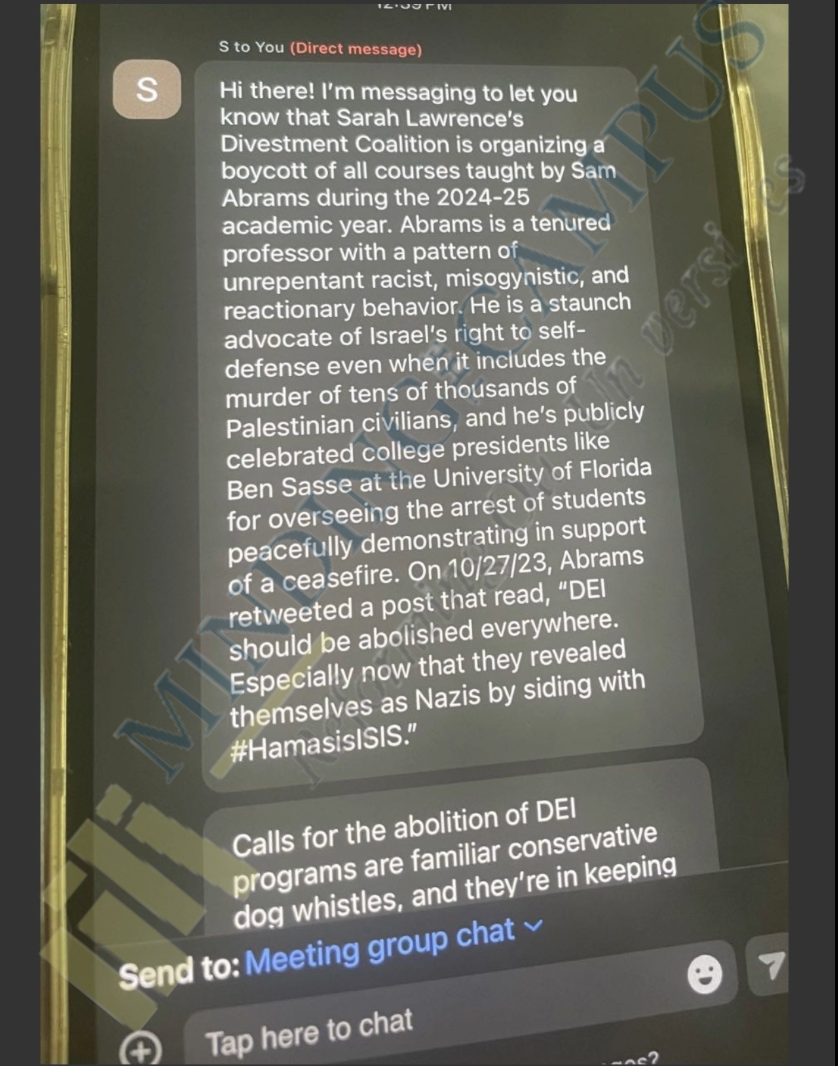CounterCurrent: Week of 09/02/24
The school year has begun and we are off to an interesting start.
During the last academic year, many college and university campuses were engulfed by pro-Palestinian protests. Despite the handwaving of campus administrators, these protests continued disrupting campus life, forced class closures, and eventually caused students to leave campus altogether. Many institutions found their reputation circled by vultures. College boards responded by sending a handful of presidents to pasture, while others made fanfare of the ax.
The actions of protestors were a direct response to the failure of leadership. Each campus turned into an experiment in their own right: some institutions pulled on blinders and pretended that no such protests were occuring, some capitulated, and others made clear the lines that could not be crossed and exercised enforcement of these rules.
Protests and encampments will resume on campuses—some have already sprouted. Columbia University, the center of the protests last spring, is bracing for a new wave of protests. The university’s president, Minouche Shafik, just resigned, with Katrina Armstrong stepping in as interim president. Columbia’s “Task Force on Antisemitism” released a statement, recommending the university “revamp its disciplinary process and require additional sensitivity training for students and staff.” Columbia, if you can’t tell, was lax in its enforcement of disciplinary measures.
As the year continues, let us hope college presidents and leadership will take action and set firm boundaries before things get ugly. There is no reason to repeat the mistakes of Columbia, MIT, or Penn. And yet, students are already testing boundaries.
In an article for Minding the Campus, Samuel J. Abrams details a shocking story—academic boycotts are not just the vogue for faculty, students have now adopted the tactic too. At the start of this semester, Abrams, a professor at Sarah Lawrence College, discovered his classes are being boycotted by several groups, including the Sarah Lawrence Socialist Coalition and the Sarah Lawrence Review. Not only this, students within these groups were encouraging other students to boycott Abrams’s classes. Abrams writes of his discovery of the boycotts against him,
During interview week, professors hold Zoom sessions to discuss their course plans and engage with prospective students—a course-shopping practice that started during the pandemic. This year, several leftist students, intent on canceling me and boycotting my courses—I’m teaching classes on Polarization and Presidential Leadership—resorted to privately messaging many of the prospective students in my Zoom room. These factually inaccurate and deliberately provocative messages went unnoticed by me during the session, as I was focused on sharing syllabi and other course-related information. It wasn’t until after the session that one of the students who received a message showed it to me, and I became aware of the situation.
As a result, Abrams notes that his classes, which usually have waitlists, were not full—especially surprising in an election year. He continues to say that the private messages contained false information about a tweet.

Screenshot of the message obtained by Minding the Campus
The National Association of Scholars has spent some years tracking and defending individuals from cancel culture. This tactic is a direct affront to the academic integrity of an institution, trading in reasoned scholarship for political activism. In today’s world, social media is the weapon of choice for those perpetrating cancel culture. And as Abrams elaborates, “While that’s bad enough, this tactic of directly messaging students is a chilling evolution of cancel culture that threatens speech, expression, learning, and open inquiry.”
Abrams will not be the only professor targeted by students this semester. Smaller schools, like Sarah Lawrence College, may see the effects of academic boycotts against professors more poignantly, as students feel social pressure to “fit in” with peers—something that the Sarah Lawrence Socialist Coalition, the Sarah Lawrence Review, and others are exploiting, Abrams states.
By canceling professors for disagreements in opinion, students miss out on the opportunity to receive a well-rounded education that challenges their beliefs. This is one way education enriches the lives of students, as Abrams notes in his final call to action: “higher education must take this challenge seriously if it is to survive and fulfill its liberal mission of helping all students find the truth, explore openly, and question without fear or threat.”
Until next week.
CounterCurrent is the National Association of Scholars’ weekly newsletter, written by the NAS Staff. To subscribe, update your email preferences here.
Photo by Win Nondakowit on Adobe Stock













